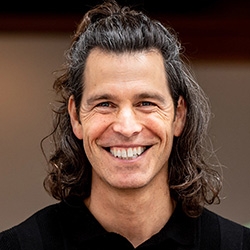

Search Results: experiencing
-
What's really going on underneath the surface when we bring or encounter blame, judgements, pain -- and thereby the inability to empathize, be present, attuned, or responsive? Why does this happen even if one or more people in a relationship dynamic is working hard at bringing in an NVC response? This article addresses these and more questions from the perspective of how our brains are affected in our relationships.
-
This 5-session telecourse recording is designed to support you in learning what makes giving and receiving feedback challenging and how you can turn these experiences into opportunities for learning, connection, and effective functioning.
-
"All humans share the same needs" -- tragically, this idea can hide the reality that some people with less power in society have needs that go unmet to a greater extent, much longer, and with more dire consequences. Often, when the marginalized bring up experiences related to their membership in a certain group, their pain isn't acknowledged, and focus shifts to the listener's discomfort. The concept of universal human needs can be used to silence and minimize their pain. Read on for how to proceed.
-
Trainer Tip: Thinking someone is bad, wrong, or evil can make it more difficult to connect with them. If we focus on this kind of thinking, we stay in the problem or conflict. The minute we step out of judgement and listen for the needs underlying their actions, we begin working for the solution. Put your focus in the direction of the result you want. Read on for an example.
-
Two NVC trainers went into dangerous, war torn territory to share the skills they found so valuable but end up learning that they need to first apply those skills before those they came to help could receive what they had to offer. Only when the foundation of connection and trust was built could they mediate the conflicts using empathic communication.
-
-
Dear Friends,
Have you ever found yourself in a situation where you could not see a good option, no matter how hard you looked? Or have you ever done something you felt ashamed or embarrassed about and struggled to release the shame?
Recently, I was telling a childhood story to some friends. It had us all laughing (a very welcome moment!), and it also got me reflecting about honesty and authenticity. Here’s the story:
-
There's the real need. And then there's the privilege that’s offered as a substitute for it. Privilege substitutes support the existing structure of society. It can look to us as if giving up the privilege would amount to giving up everything -- if we don't believe the real needs can even be experienced. If we connected directly to the needs, we could become subversive, agents of change.
-
In healing reactivity try identifying your most common complaints, wishes, or requests. Or when you tend to defend, justify, get angry, or protect. Find the tender needs. You can recall when you experienced deep nourishment of that need. Several times a week nourish your tender needs. Be clear about the strategy to address needs by answering key questions. Read on for more.
-
When we are completely involved in an activity for its own sake we are in engagement. Here, the ego falls away and time flies. Every action, movement, and thought follows inevitably from the previous one. Our whole being is involved, and we're using our skills to the utmost. Read on for activities that could stimulate engagement, a list of subjectively experienced elements of engagement and a list of what supports engagement.
-
To learn to identify and speak from your needs requires specific tasks and practices. Here's a list of 10 learning tasks and practices for you to choose from. Some of these ideas include using needs cards and lists, working backwards from strategies and ideal scenarios, reflecting on past experiences and relationships, and asking for/offering/exchanging empathy.
-
Marriage can be seen as a limit on freedom. Ideas of compromise collude with this view. Instead, notice when your "yes" to your partner is laden with obligation, duty, guilt, fear, or an attempt to win love or approval, and how it's not a truly free "yes". True freedom is different from compulsion, and doesn't conflict with other needs. When have you experienced true freedom? What conditions support your access to freedom?
-
Amidst the Israel/Palestine war we see polarizing media portrayals and the battle for public opinion. Read how one person shares his deep, personal connections to the Israel/Palestine conflict, expresses the trauma and viewpoints of both Palestinian and Israeli experiences -- in a way that aims to transcend polarizations, hold compassion, and understand the complexity on both sides. Despite the immense challenge that defies easy resolution, he holds hope, noting historical reconciliations such as the ones between Germans and Jews.
-
-
When we apply and practice NVC over a number of months in an organization, it can create group norms that make learning go deep faster. These new norms can impact people's interactions with others both inside and outside of work. From here, there's potential for people to start seeing value when they share these skills and experiences. This may create a ripple effect of interest in applying NVC across different domains in life.
-
Roxy Manning discusses the need to expand our understanding of observations within Nonviolent Communication (NVC). She challenges the idea of objective observation, noting its limitations, and introduces internal observations, citing personal experiences to illustrate their influence on emotions and self-perception. Additionally, she emphasizes systemic awareness as a crucial aspect of observation, highlighting its importance in understanding broader societal issues. Overall, Roxy advocates for a comprehensive approach to observations in NVC, incorporating external, internal, and systemic perspectives to foster inclusivity and empathy.
-
When building successful relationships, it can be very helpful to see yourself as a collection of different inner parts that developed due to various life experiences. Without empathy and acknowledgment, our inner parts tend to work against us. That's when we're called upon to build and develop our inner leadership...
-
Repairing betrayal may include rebuilding self trust, getting support, empathy on both sides over time, and new agreements. Even though your (in)actions don't "cause" someone's behavior, acknowledging any part you played in creating conditions for the behaviors to arise, can support repair. Trust builds slowly as new skills, ways of relating and experiences that reflect honesty, self responsibility, and respect are consistent over time.
-
For us to have a more peaceful world and relationships, growing our skills to engage interdependently is key. An interdependence-oriented person may choose to attend to both inner factors and outer factors that affect their own and others' experiences. Unfortunately, this is likely to be misunderstood by independence-oriented people as enmeshment -- and this is where conflict emerges. Read on for more.
-

Quick Links
Subscription Preferences
Stay In Touch!
Looking for ways to keep up with NVC Academy news, get special offers, free resources, or words of inspiration? Here are five ways to stay engaged:

















